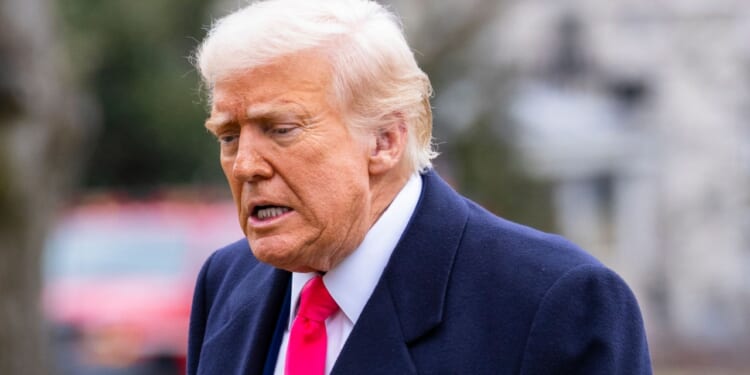President Trump’s management of the US economy is setting his party up for failure in the 2026 midterms.
James Carville, Bill Clinton’s political advisor, famously said that when it came to elections, “it’s the economy, stupid.” This week’s convincing Democratic Party triumph at the polls in California, New York, New Jersey, and Virginia would suggest that Carville’s maxim remains as true as ever. Dissatisfaction with the state of the economy in general and high prices in particular played a major part in the Democratic Party’s success at the polls. This does not bode well for the Republicans in next year’s midterm elections, given that several factors are already clouding the economic outlook for 2026.
Start with an overly expansive budget and monetary policy mix that is likely to keep price inflation uncomfortably high and lead to an increase in long-term interest rates, including, most notably, mortgage rates. That has to be of the utmost concern to Republican hopefuls in 2026. Surveys indicate that high consumer prices and the lack of housing affordability seem to be at the top of the electorate’s mind, as they were in the 2024 presidential election.
According to the International Monetary Fund, the US budget deficit is likely to stay around 7 percent of GDP for the next few years. That will keep the already high US public debt on a clearly unsustainable path. At the same time, President Trump appears determined to undermine the Federal Reserve’s independence by altering the composition of its board and by appointing a monetary policy dove to replace Chairman Jerome Powell when his term expires in May of next year.
Trump has made no secret of his desire for the Fed to cut interest rates by as much as three percentage points. He wants to do so even at a time when inflation is already running above the Fed’s 2 percent inflation target. Trump’s tariff hikes are also likely to push inflation up above its current 3 percent rate.
A key vulnerability of the US economy is its dependence on foreigners to finance its budget and trade deficits. Indeed, foreign investors currently own around 30 percent of the $29 trillion in outstanding US Treasury bonds. With Trump running an unusually large budget deficit while attacking the Fed’s independence, foreign investors might start to fear that the United States might try to inflate its way out of its debt problem. If that occurs, foreigners could become increasingly reluctant to buy US Treasury bonds. In turn, that could cause the dollar to slump and the all-important 10-year Treasury bond rate, which determines mortgage rates, to rise.
Another potential economic headache for Trump in the run-up to the mid-term elections could be the bursting of the artificial intelligence-induced stock market and credit market bubbles. According to Shiller’s Cyclically Adjusted Price Earnings (CAPE) measure, the S&P 500 now has a value of around 40. That is more than double its long-run average and similar to the level reached in 2000 on the eve of the bursting of the “dot.com” bubble. Meanwhile, according to Warren Buffett’s preferred measure of the market’s overvaluation—the ratio of the market’s total valuation to the country’s Gross Domestic Product—this ratio has reached an all-time high of around 220 percent.
While no one knows when the stock market and credit market bubbles will burst, Trump is playing with fire by pursuing a reckless budget and monetary policy. All of this should encourage a rethink of the overall economic strategy if the Republican Party is to stand a chance at the polls next November. Budget policy should become more restrained, central bank independence should be placed beyond question, and a more consistent and less aggressive import tariff policy should be pursued. For better or for worse, there is no sign to date that President Trump is thinking along these lines.
About the Author: Desmond Lachman
Desmond Lachman is a senior fellow at the American Enterprise Institute and was a deputy director in the International Monetary Fund’s Policy Development and Review Department and the chief emerging-market economic strategist at Salomon Smith Barney.
Image: Joshua Sukoff / Shutterstock.com.

















